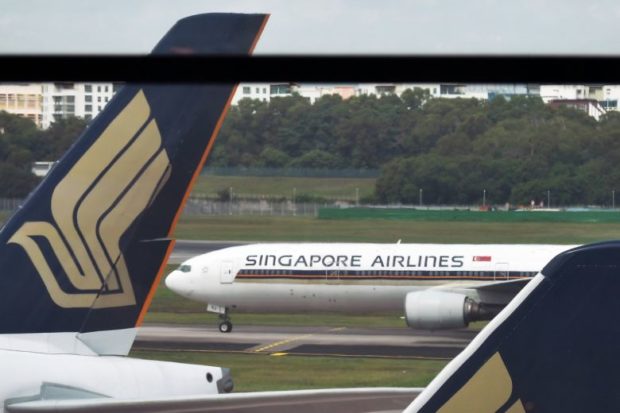Singapore Airlines extends cancellation of 96% of flights until end-June

Customers whose flights were cancelled by SIA or SilkAir will retain the full value of the unused portion of their tickets as flight credits. The Straits Times/Asia News Network/LIM YAOHUI
SINGAPORE — Singapore Airlines has extended its wide-ranging flight cancellations by another month, just four days after it announced a one-month extension.
This means that 96 percent of its scheduled flights till end-June will be cancelled, amid travel restrictions worldwide and a drastic drop in demand for air travel.
The first round of cuts were announced in late March. It was initially for scheduled flights till end-April.
In a notice on its website on Friday (April 24), SIA said it will continue to adjust its services in response to the ongoing Covid-19 pandemic.
Customers whose flights were cancelled by SIA or SilkAir will retain the full value of the unused portion of their tickets as flight credits. They will also be awarded bonus flight credits when rebooking their flights.
More information on the carriers’ cancellation policy can be found on SIA’s website.
The extended cuts mean that SIA will fly to just 15 cities up till end-June.
Until this crisis hit, SIA was the 15th largest airline group in the world, serving around 140 destinations in more than 35 countries and territories.
The carrier is seeking to raise up to $15 billion with the help of Temasek. This will be done by issuing new shares to current shareholders to raise about $5.3 billion and issuing mandatory convertible bonds to raise up to $9.7 billion.
Globally, airlines have also been struggling to cope with the impact of the Covid-19 crisis.
The International Air Transport Association (Iata) said on Friday that global airline passenger revenues could drop by US$314 billion (S$447 billion) this year, a 55 per cent decline compared to last year.
Airlines in the Asia-Pacific will see the largest revenue drop of US$113 billion this year compared to last year. They are also expected to register a 50 per cent fall in passenger demand this year compared to 2019.
Mr Conrad Clifford, Iata’s regional vice-president for the Asia-Pacific region, said: “The situation is deteriorating.
“We have seen the first airline casualty (Virgin Australia) in the region. There will be more casualties if governments do not step in urgently to ensure airlines have sufficient cash flow to tide them over this period.”
Virgin Australia, which is 20 per cent owned by SIA, handed control to administrators on April 21.
For more news about the novel coronavirus click here.
What you need to know about Coronavirus.
For more information on COVID-19, call the DOH Hotline: (02) 86517800 local 1149/1150.
The Inquirer Foundation supports our healthcare frontliners and is still accepting cash donations to be deposited at Banco de Oro (BDO) current account #007960018860 or donate through PayMaya using this link.